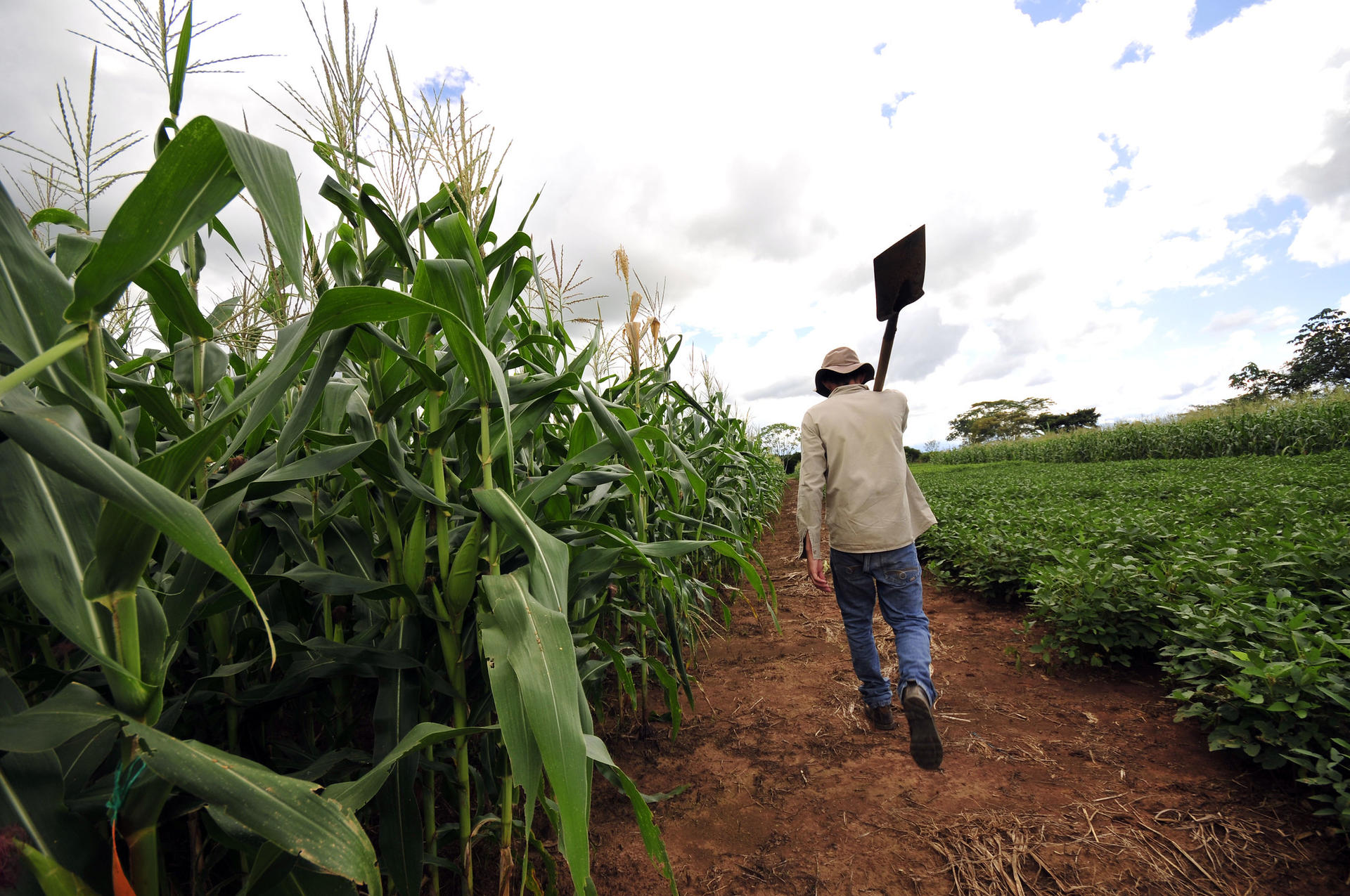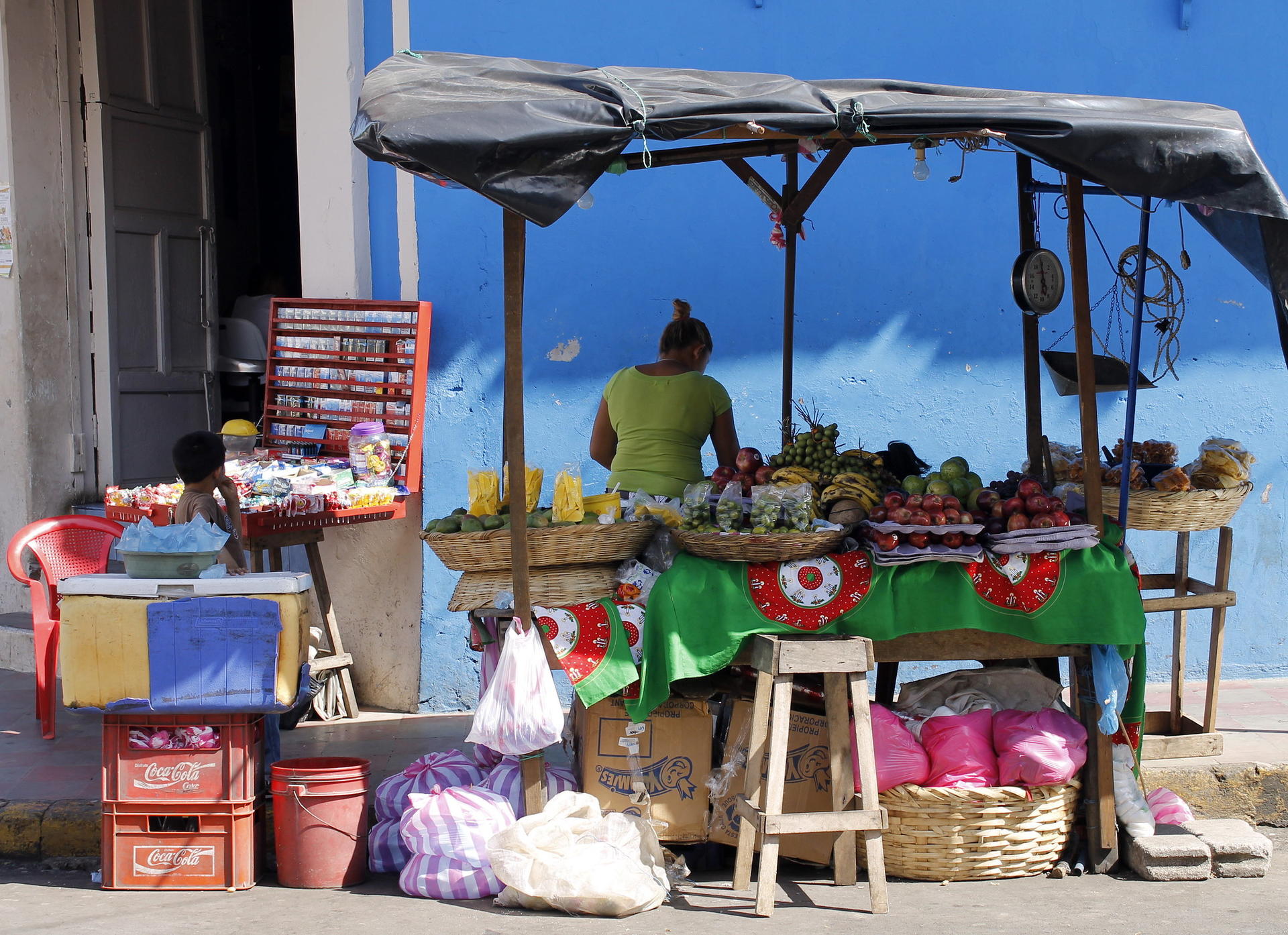2020 Annual Report Latin America and the Caribbean need increased support for troubled food systems

The pandemic reversed decades of economic gains in the region. Poverty and food security are major concerns that need immediate international attention.
In 2013, after working on other themes and regions, I returned to Latin American agricultural and rural development. I found big changes since the late 1990s and early 2000s when I worked in Bolivia and Paraguay.
Latin America was urbanizing rapidly (almost 80% now live in cities) and poverty had fallen to 28% in 2014, thanks to social programs and strong economies. But deforestation was increasing, the impact of climate change was more evident with more droughts and floods. Hunger affected 40 million people in 2015. These problems have worsened.
The COVID-19 pandemic accelerated recent trends in the wrong direction. Poverty last year in the region rose to almost 34%. Some 16 million people could face severe food insecurity, up from 4.3 million in 2019. In South America in particular, deforestation is increasing.
I spent much of the last eight years in the Andes, supporting investments that create jobs, improve nutrition, and conserve the environment. Success has been remarkable.
Together with many partners, we have improved the sustainability of rural activities and transformed lives. But change at scale is often hard to achieve. We need more investment, knowledge, technology transfer and collaboration.
The pandemic revealed that we must transform the way we produce, consume and think about food. We need more data and new ways of understanding food system resilience. More scientists need to work directly with decision-makers, investors and citizens.

Research is needed to understand lasting effects on markets, such as this local outlet in Nicaragua. Credit: Alliance of Bioversity and CIAT/G.Betancourt
I joined the CGIAR in 2020, shortly after the formation of the Alliance of Bioversity International and CIAT. Our united talents, ideas and resources increased our ability to do research to transform food systems and improve livelihoods.
In parallel, the CGIAR launched an ambitious transformation to facilitate more effective research and innovations. One CGIAR will build on decades of research to improve food system sustainability, offer better livelihoods, and enable the provision of safe and nutritious food for millions.
This year, the CGIAR will be an important voice at the United Nations’ first Sustainable Food Summit (UNFSS). The summit will put renewed emphasis on the importance of food systems to economies, cultures, societies, health, nutrition and conservation. It will improve our chances to meet the UN’s Sustainable Development Goals.
These converging processes underscore the need to improve the interconnectedness of our work. The CGIAR must continue to excel at research for development but also facilitate its use by smallholder farmers, development agencies, private investors and consumers.
Advances in the Americas during 2020
- In the Amazon Basin, our partnership with USAID, NASA and many others continued the success of Servir Amazonia. By last year, 11 partnerships had been signed for co-development of locally tailored services, social inclusion was officially added to the project, and monitoring for illegal mining in Peru was made ready for deployment in 2021.
- In Brazil, we built upon ambitious projects including an impact investment fund of USD 60 million, to support medium to large-scale enterprises that utilize Amazon resources sustainably. By 2020, the fund’s first two deals were structured; while the Partnership Platform for the Amazon (PPA)’s CAL-PSE initiative, increased its private sector members to more than 40 companies. To date, it has accelerated 30 small-scale sustainable businesses.
- In Colombia, we supported a first-of-its-kind sustainable certification for beef, called GANSO. This work, which rates beef producers on their use of sustainable systems including agroforestry, zero deforestation and the use of improved forages, sets an example for the Americas and beyond.
- With the European Commission, we advanced research to help reduce cadmium in cacao, chocolate’s main ingredient. The Clima-LoCa project contributes to resilient, competitive and inclusive cocoa value chains and aims to help producers in Colombia, Ecuador and Peru maintain access to European markets.
- In work that began last year, Alliance researchers are supporting Honduras ahead of the UNFSS to bring the urgent food system needs of the country to the fore.
The challenges before us are enormous, and they continue to grow. Only with greater resources, talent, techniques, science, partnerships and funding, will we progress toward real transformation with more stable and prosperous food systems.
Research Highlight
Latin America's livestock sector needs emissions reduction to meet 2030 targets
Research analyzes emission-reduction practices of the livestock sector in seven Latin American countries and associated potential to contribute to Paris Agreement targets; emission reductions may also contribute to the UN's sustainable development goals.
Read the press release here, read the article here.
More Research Highlights
Sweet business in the Amazon
Sustainable honey production in the Brazilian Amazon is a growing business that depends upon forest conservation. This field report by our communications teams visits some of the beneficiaries of our work in Brazil.
Our genebanks continue through quarantine
Working from home is not an option when it comes to the Alliance genebanks. This story tells how we managed to keep these vital repositories functioning during the COVID-19 lockdowns.
Colombia joins the Food Systems Dialogues
Alliance scientists and the Colombian government convened the first Food System Dialogue for the country. Ongoing discussions across sectors will help Colombia bring an action-focused agenda to the UN Food Systems Dialogue in September 2021.
The pandemic’s impact on food systems
The pandemic’s impacts on Latin America’s food systems were considerable. A CGIAR paper discussed impacts and mitigation opportunities for the livestock sector in Colombia. An Alliance-led panel in Colombia identified opportunities for lasting improvements in the country’s food systems.
Korea supports new bean climate research for the Americas
Nine countries in Central and South America are receiving support from Korea to distribute and improved bean varieties, and select new varieties with higher tolerance to climate change.
Colombian farmers produce 500 tons of biofortified crops in 3 months
A partnership between the Alliance, HarvestPlus and the Colombian government provided enough biofortified seeds for growers to produce some 70 tones of rice, 76 tons of bean and 366 tons of rice during 3 months in 2020. The seeds were provided to farmers to help alleviate micro-nutritional deficits linked to COVID-19’s hit on the economy.
Latin America’s rice sector and COVID-19: a report on the disruptions
The Latin American Fund for Irrigated Rice (FLAR), published a region-wide analysis (In Spanish) of how the pandemic impacted rice production and consumption across the region. While the food sector was not broadly subject to lockdown restrictions, most countries throughout the region reported some level of disruption that led to price increases or production bottlenecks.
